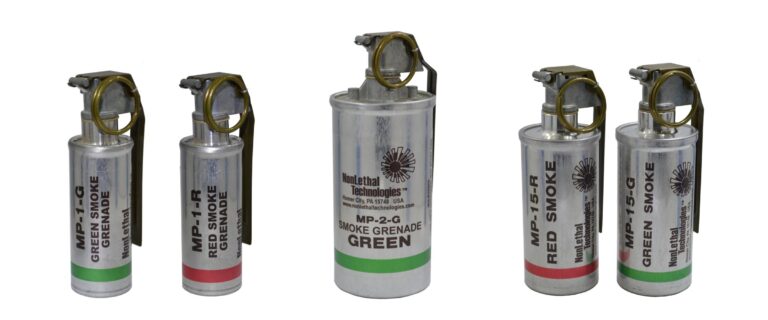Table of Contents
- Legal Framework Governing Non-Lethal Weapons in Pennsylvania
- Types of Non-Lethal Weapons Permitted and Their Applications
- Key Restrictions and Compliance Tips for Responsible Ownership
- Best Practices for Safe Handling and Use of Non-Lethal Weapons
- The Way Forward
Legal Framework Governing Non-Lethal Weapons in Pennsylvania
In Pennsylvania, the legal regulation of non-lethal weapons is designed to balance public safety with individual rights. Under state law, citizens are permitted to possess and carry certain non-lethal weapons such as pepper spray and stun guns, but these are subject to specific restrictions. For instance, pepper sprays containing up to 10% oleoresin capsicum are generally legal for self-defense purposes without the need for a permit. However, the use of such devices inappropriately or with malicious intent can lead to criminal charges, emphasizing the importance of understanding both the legal boundaries and ethical considerations involved.
The state also imposes clear guidelines regarding the sale, possession, and tactical application of non-lethal weapons. Some key details include:
- Age Restrictions: Individuals must typically be over 18 to purchase or carry non-lethal weapons.
- Prohibited Use: Employing these devices against law enforcement or in commission of a crime is strictly forbidden.
- Public Locations: Certain public areas, such as schools and government buildings, may ban carrying these weapons outright.
By adhering to these regulations, Pennsylvania residents can ensure that their right to self-defense aligns with the state’s legal framework, avoiding unintended legal consequences while maintaining personal security.
Types of Non-Lethal Weapons Permitted and Their Applications
In Pennsylvania, residents can carry various non-lethal weapons designed primarily for self-defense and personal safety. Among the most common permissible options are pepper spray, which is popular due to its effectiveness in temporarily incapacitating an attacker without causing lasting harm. Additionally, stun guns and tasers are legally allowed with certain restrictions, offering an electrical shock to subdue assailants while minimizing injury risk. Many also choose personal safety alarms, which emit loud sounds to disorient attackers and attract nearby help.
These non-lethal weapons serve different applications depending on the situation. For instance, pepper spray is ideal for close-range encounters and easy to carry discreetly, while stun guns are favored for their ability to disable an attacker in close quarters. Personal alarms act more as deterrents than direct defense tools, useful in situations where creating a distraction or calling attention is the priority. Understanding the appropriate use of each device not only helps in selecting the right protection but also ensures compliance with Pennsylvania’s laws, which emphasize responsible carrying and use.
Key Restrictions and Compliance Tips for Responsible Ownership
In Pennsylvania, responsible ownership of non-lethal weapons requires a clear understanding of several important limitations. For instance, certain devices such as stun guns may be restricted in specific municipalities despite their overall legality statewide. Additionally, the use of non-lethal weapons is strictly confined to self-defense situations; any deployment intended to intimidate, harass, or provoke could lead to legal consequences. To maintain compliance, owners should always carry their devices in a manner that respects public safety laws and avoid usage in prohibited settings like schools, government buildings, or public transit systems.
To ensure full compliance and peace of mind, consider these essential tips:
- Verify Local Ordinances: Check city or county regulations before carrying non-lethal weapons, as local laws might impose stricter rules than state statutes.
- Age Restrictions: Confirm you meet the minimum age requirements; typically, individuals must be 18 or older to possess these devices legally.
- Safe Storage Practices: Store weapons securely, especially when children or unauthorized persons are present, to prevent accidents or misuse.
- Understand Use-of-Force Boundaries: Avoid escalating confrontations and use non-lethal weapons solely as a last resort for protection.
Best Practices for Safe Handling and Use of Non-Lethal Weapons
When it comes to handling non-lethal weapons, safety and responsibility must always come first. Always ensure that you are familiar with the specific operation and maintenance instructions provided by the manufacturer. Before carrying or using any non-lethal device, conduct regular inspections to confirm it is in proper working order and free from defects. It’s essential to keep these tools secured when not in use-preferably in a locked container or holster designated for non-lethal weapons-to prevent unauthorized access or accidental discharge.
Adhering to local laws is critical, but beyond legality, consider the following best practices to enhance safety:
- Training: Invest in professional training to understand the appropriate scenarios and techniques for deploying non-lethal force effectively.
- Situational Awareness: Always assess your environment carefully before use, ensuring that employing such weapons is justified and proportionate.
- Communication: Whenever possible, use verbal warnings before resorting to force, helping to de-escalate potential conflicts.
- Aftercare: If a non-lethal weapon is used, provide or seek immediate medical assistance to mitigate any harm.
The Way Forward
In understanding Pennsylvania’s legal framework surrounding non-lethal weapons, it’s clear that responsible ownership and usage are paramount. Whether for personal safety or professional purposes, being informed about the regulations ensures that these tools serve their intended purpose without legal complications. Staying up to date with any legislative changes and using non-lethal weapons with caution not only protects you but also contributes to a safer community overall. If you’re considering acquiring or carrying a non-lethal weapon, taking the time to thoroughly understand the state’s laws is an essential first step.Check Our Other Blogs
- StunGun – Your Trusted Source for Stun Guns, Laws, and Self-Defense Tips
- PepperSprayLaws – Your Trusted Resource for Pepper Spray Information
- StunGunLaws – Your Trusted Guide to Stun Gun Legality and Safety



